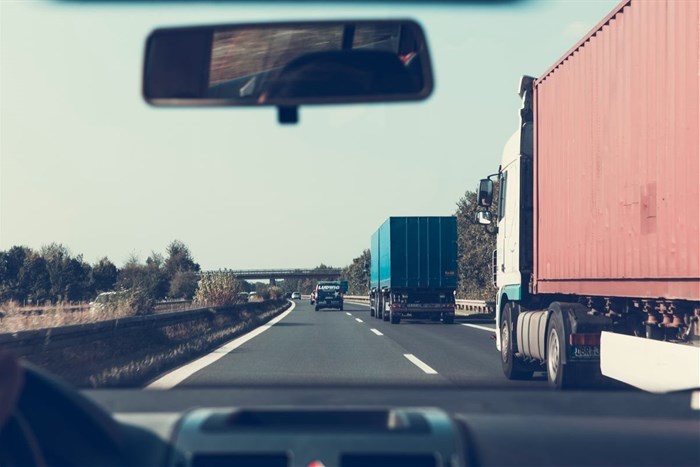
Recently, a number of seemingly coordinated attacks were launched on trucks on national roads, with around 84 trucks burned or damaged since April this year, and drivers and co-drivers injured or sadly killed. In addition, the holiday season tends to bring an increase in truck hijacking, and cargo theft and pilfering.
To minimise the chances of delays, damage, loss and critical risk to human life, fleet and logistics firms need to step up their focus on safety measures.
Provide proper training and even advanced driving courses and tactical anti-hijacking training if possible. Knowing how to avoid or get out of a dangerous situation could be the difference between life and death for drivers.
Raise drivers' awareness of common hijacking techniques such as staging an accident or suggesting there is a fault with the truck. Spend time training drivers on alternative routes they may follow, should their usual route be blocked or dangerous.
Reinforce rules on keeping doors locked, not picking up hitchhikers and only stopping in safe zones. It is also important to verify your drivers’ information; for example, the validity of driver’s licences and Professional Driver’s Permit, and ensure that your drivers have all the correct permits for travelling, whether for local or cross-provincial border deliveries.
When it comes to drivers, there is no replacement for experience. Appoint drivers with relevant experience and qualifications and check that their licences are in order. When using foreign drivers, verify their drivers’ licences through a foreign credential verification service. Although there can be a significant cost in obtaining this verification, this amount is small compared to the losses associated with truck accidents where the claim may be prejudiced.
In addition, remember that drivers who have not had sufficient rest between trips or who are driving a poorly maintained vehicle are far more likely to cause accidents, increasing the risk to them, other road users and your business.
Support drivers by providing a panic button, 24-hour live tracking, live streaming event recorder or cloud-enabled dashcam. Map your routes to keep your vehicle, driver and goods safe – and keep up to date on high-risk areas and avoid these routes. Ensure that drivers have sufficient mobile power and data to connect with the control room at all times.
Close and secure cargo areas and invest in good quality locks. You could also place spikes or other deterrents on strategic areas, such as mudguards, to deter would-be boarders. Install mobile tracking units and remote-enabled electronic locks among the goods in transit.
Ensure all vehicles are roadworthy and that basics like tyre pressure, oil and brake/ clutch fluid are checked regularly to minimise the risk of breakdowns. Needless to say, your cargo and drivers are at higher risk if a vehicle is broken down on the side of the road. Supply additional fire extinguishers and consider measures such as reinforced glass.
Avoid overloading, which not only increases the risk of accidents, but also makes vehicles slower and harder to handle, and could present an opportunity for opportunistic criminals to board the vehicles. Overloading has a direct impact on the severity of the damage incurred.
It is essential to make sure that appropriate insurance cover is in place, covering third party, fire, theft and accident for the full value of goods in transit. Understand your insurance cover and optional cover available, as well as the excess payable. When choosing a goods in transit policy, it’s important that you insure yourself based on the maximum possible value of your haul.
Many businesses tend to opt for an average amount in an attempt to lower their premiums, but should you have undervalued your haul, you’ll be underinsured and only be paid out proportionately on a claim. It is also important to note that the goods may not be covered should any theft occur as a result of a driver’s negligence – for example, theft from unattended vehicles.
Remember that insurance cover is only valid if the vehicle is roadworthy, appropriately loaded within its specified range and operated by qualified personnel.
Any business’s greatest assets are its employees, but those employees can also present some of the most challenging risks for employers to manage. Fraud and theft by an employee is something that can occur in any business. Staff Dishonesty cover will insure you against fraud or theft by employees of items insured under your policy.
If you offer specialised transportation, it might be worth considering a few optional extras to bump up your level of cover. For instance, should your load include perishable goods dependent on working refrigeration, you will likely need to take out an optional extra on your policy to indemnify you against losses incurred as a result of any cooling malfunctions.
Similarly, should your delivery routes extend beyond the country’s borders, it’s important to specify this on your policy so as to ensure you’re not without cover should misfortune strike on the roads of a neighbouring country.
The transport company could be liable for clean-ups and repairing damage to infrastructure caused by its vehicles during an accident, so it is also important to consider these risks and potential costs and ensure that your insurer can take charge of all costs and clean-up operations.